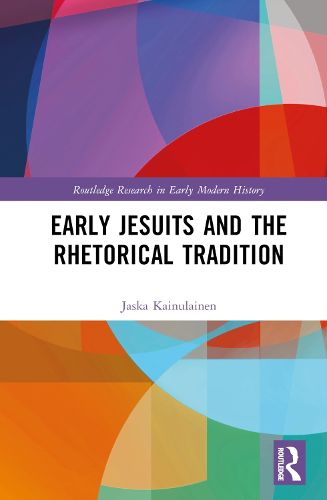Readings Newsletter
Become a Readings Member to make your shopping experience even easier.
Sign in or sign up for free!
You’re not far away from qualifying for FREE standard shipping within Australia
You’ve qualified for FREE standard shipping within Australia
The cart is loading…






This book explores sixteenth- and seventeenth-century Jesuit contributions to the rhetorical tradition established by Isocrates, Aristotle, Cicero and Quintilian. It analyses the writings of those Jesuits who taught rhetoric at the College of Rome, including Pedro Juan Perpina, (1530-66), Carlo Reggio (1539-1612), Francesco Benci (1542-94), Famiano Strada (1572-1649) and Tarquinio Galluzzi (1574-1649). Additionally, it discusses the rhetorical views of Jesuits who were not based in Rome, most notably Cypriano Soarez (1524-93), the author of the popular manual De arte rhetorica. Jesuit education, Ciceronianism and civic life feature as the key themes of the book.
Early Jesuits and the Rhetorical Tradition, 1540-1650 argues that, in line with Cicero, early modern Jesuit teachers and humanists associated rhetoric with a civic function. Jesuit writings, not only on rhetoric, but also on moral, religious and political themes, testify to their thorough familiarity with Cicero's civic philosophy. Following Cicero, Isocrates and Renaissance humanists, early modern Jesuit teachers of the studia humanitatis coupled eloquence with wisdom and, in so doing, invested the rhetorician with such qualities and duties which many quattrocento humanists ascribed to an active citizen or statesman. These qualities centred on the duty to promote the common good by actively participating in civic life.
This book will appeal to scholars and students alike interested in the history of the Jesuits, history of ideas and early modern history in general.
$9.00 standard shipping within Australia
FREE standard shipping within Australia for orders over $100.00
Express & International shipping calculated at checkout
This book explores sixteenth- and seventeenth-century Jesuit contributions to the rhetorical tradition established by Isocrates, Aristotle, Cicero and Quintilian. It analyses the writings of those Jesuits who taught rhetoric at the College of Rome, including Pedro Juan Perpina, (1530-66), Carlo Reggio (1539-1612), Francesco Benci (1542-94), Famiano Strada (1572-1649) and Tarquinio Galluzzi (1574-1649). Additionally, it discusses the rhetorical views of Jesuits who were not based in Rome, most notably Cypriano Soarez (1524-93), the author of the popular manual De arte rhetorica. Jesuit education, Ciceronianism and civic life feature as the key themes of the book.
Early Jesuits and the Rhetorical Tradition, 1540-1650 argues that, in line with Cicero, early modern Jesuit teachers and humanists associated rhetoric with a civic function. Jesuit writings, not only on rhetoric, but also on moral, religious and political themes, testify to their thorough familiarity with Cicero's civic philosophy. Following Cicero, Isocrates and Renaissance humanists, early modern Jesuit teachers of the studia humanitatis coupled eloquence with wisdom and, in so doing, invested the rhetorician with such qualities and duties which many quattrocento humanists ascribed to an active citizen or statesman. These qualities centred on the duty to promote the common good by actively participating in civic life.
This book will appeal to scholars and students alike interested in the history of the Jesuits, history of ideas and early modern history in general.